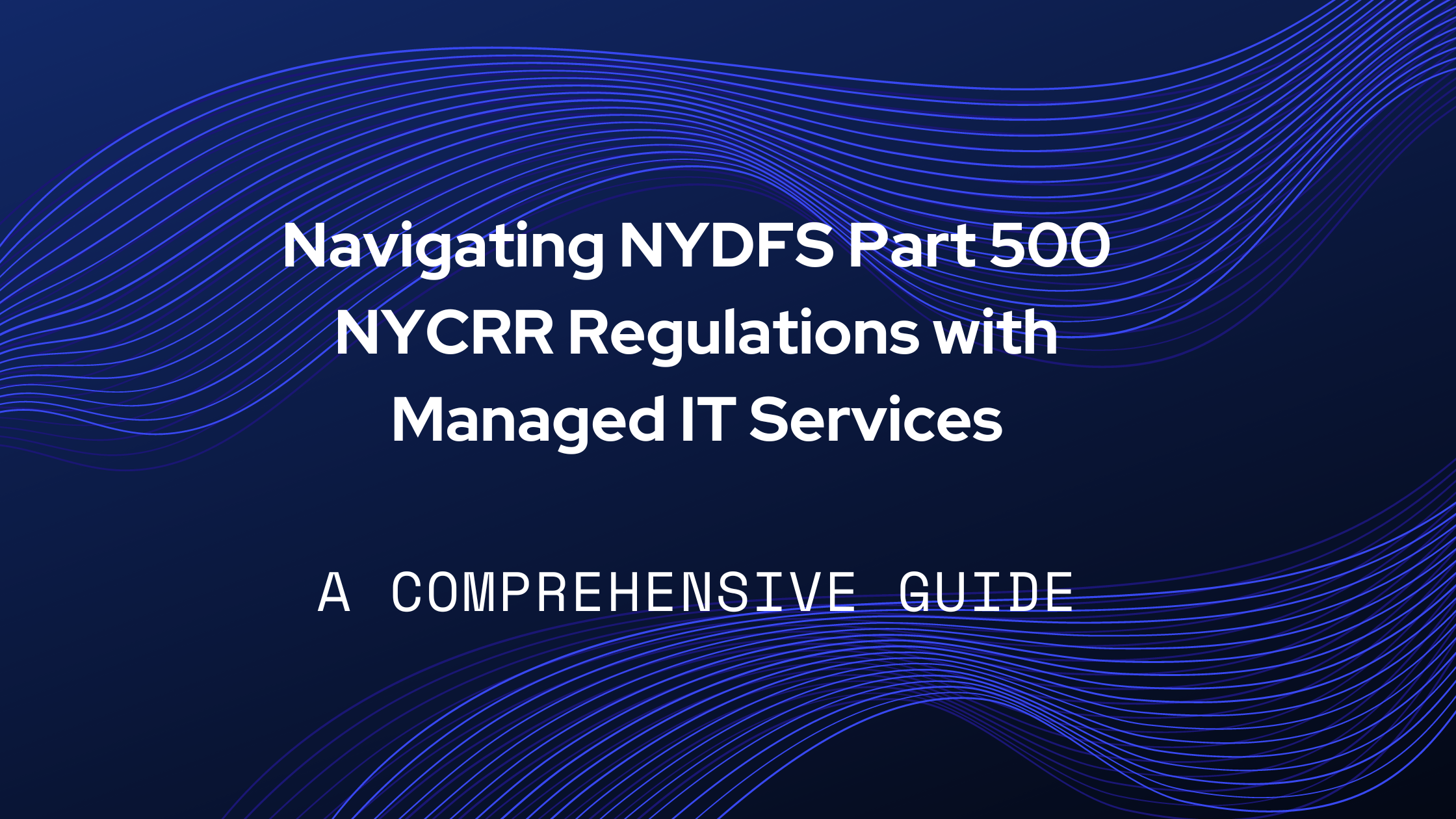The New York Department of Financial Services (NYDFS) has long been a leader in setting rigorous cybersecurity standards through the New York Codes, Rules, and Regulations (NYCRR). Specifically, Part 500 of the NYCRR outlines comprehensive requirements that financial institutions must follow to protect their information systems and sensitive data. The 2024 updates to this regulation underscore the critical need for robust cybersecurity frameworks that ensure the confidentiality, integrity, and availability of financial data.
Demystifying NYDFS Part 500 NYCRR
NYDFS Part 500 NYCRR is a set of regulations designed to ensure that financial institutions operating in New York maintain the highest standards of cybersecurity. Initially introduced in March 2017 and most recently updated in November 2023, these regulations establish a baseline for cybersecurity practices within New York’s financial sector. The Part 500 regulation mandates that all covered entities, including banks, insurance companies, and other financial services firms, implement comprehensive cybersecurity programs that secure private data and information systems.

16 NYCRR Part 500 Requirements — icons sourced from icons8.com
The regulation is broken down into 16 sections, each addressing a specific aspect of cybersecurity compliance. The key sections include:
- Cybersecurity Program (500.2): Establish and maintain a cybersecurity program designed to protect the confidentiality, integrity, and availability of information systems.
- Cybersecurity Policy (500.3): Implement a written cybersecurity policy, approved by a senior officer or the board of directors, to guide the protection of nonpublic information and information systems.
- Chief Information Security Officer (CISO) (500.4): Designate a qualified individual to serve as the CISO, responsible for overseeing and enforcing the cybersecurity program.
- Penetration Testing and Vulnerability Assessments (500.5): Conduct periodic penetration testing and bi-annual vulnerability assessments to identify and mitigate risks to information systems.
- Access Privileges (500.7): Limit user access privileges to information systems and periodically review these privileges to ensure they are granted only to those who need them.
- Incident Response Plan (500.16): Establish a written incident response plan to respond promptly to and recover from cybersecurity events that affect the confidentiality, integrity, or availability of information systems.
2024 Regulatory Updates and Challenges
The 2024 amendments to NYDFS Part 500 NYCRR reflect significant changes in the cybersecurity landscape, driven by the increasing prevalence and sophistication of cyberattacks. These updates incorporate best practices for protecting consumers and businesses from emerging cyber threats. Notable updates include:
- Strengthened Governance and Oversight:
- The regulation now mandates that the CISO report directly to the senior governing body on significant cybersecurity issues. This ensures that the board has sufficient knowledge to exercise effective oversight of the institution’s cybersecurity risk management
- Independent Audits Linked to Risk Assessments:
- Class A companies (large financial institutions) are now required to conduct independent audits of their cybersecurity programs based on annual risk assessments. This aligns with the NYDFS’s shift toward a risk-based approach, ensuring that audits are focused on the most critical vulnerabilities identified within the institution
- Enhanced Incident Response and Business Continuity Planning:
- The updated regulations emphasize the integration of Business Continuity and Disaster Recovery (BCDR) planning into incident response strategies. Financial institutions must conduct annual testing of these plans and ensure they are prepared to recover from cybersecurity-related disruptions
- Increased Frequency of Risk and Vulnerability Assessments:
- Annual penetration testing and continuous monitoring of vulnerabilities are now mandatory for many organizations. Institutions must update their risk assessments whenever there is a significant change in their business or technology environment.
Leveraging Managed IT Services for NYDFS Part 500 NYCRR Compliance
Navigating these complex regulatory requirements can be challenging, particularly for institutions without dedicated cybersecurity teams. Managed IT services provide a strategic solution by offering the expertise and resources needed to comply with NYDFS Part 500 NYCRR.
- Risk Management and Compliance Support: Managed IT providers offer comprehensive risk assessments, identifying vulnerabilities and implementing controls that align with NYDFS Part 500 NYCRR requirements. This proactive approach ensures that financial institutions remain compliant and secure.
- Automated Monitoring and Incident Response: Advanced tools like Security Information and Event Management (SIEM) systems enable continuous monitoring of cybersecurity events, ensuring prompt detection and response. Managed IT services also facilitate the generation of detailed compliance reports, simplifying the audit process.
- Employee Training and Awareness Programs: Regular training sessions provided by managed IT services help employees stay informed about the latest cyber threats and best practices. This reduces the risk of human error and ensures that staff are prepared to respond effectively to cybersecurity incidents .
Why Choose Systech MSP?
The 2024 amendments to NYDFS Part 500 NYCRR represent a significant shift toward more rigorous cybersecurity management. By partnering with Systech MSP, financial institutions can navigate these changes effectively, ensuring that they remain compliant while safeguarding their operations against cyber threats. Contact us today to learn more about our tailored solutions.
At Systech MSP, we understand the complexities of NYDFS Part 500 NYCRR compliance and the challenges faced by financial institutions in maintaining robust cybersecurity programs. Our managed IT services are designed to help you navigate these regulations with confidence, providing the expertise and resources needed to achieve and maintain compliance.
We offer a full suite of services, including risk assessments, incident response planning, and continuous monitoring, all tailored to meet the specific needs of your institution. With Systech, we implement these solutions seamlessly, ensuring your operations remain uninterrupted.
With Systech MSP as your partner, you can focus on delivering exceptional financial services while we ensure your cybersecurity program is compliant and resilient.
For more details on how we can support your business, explore our Advanced Cybersecurity Protection services.

